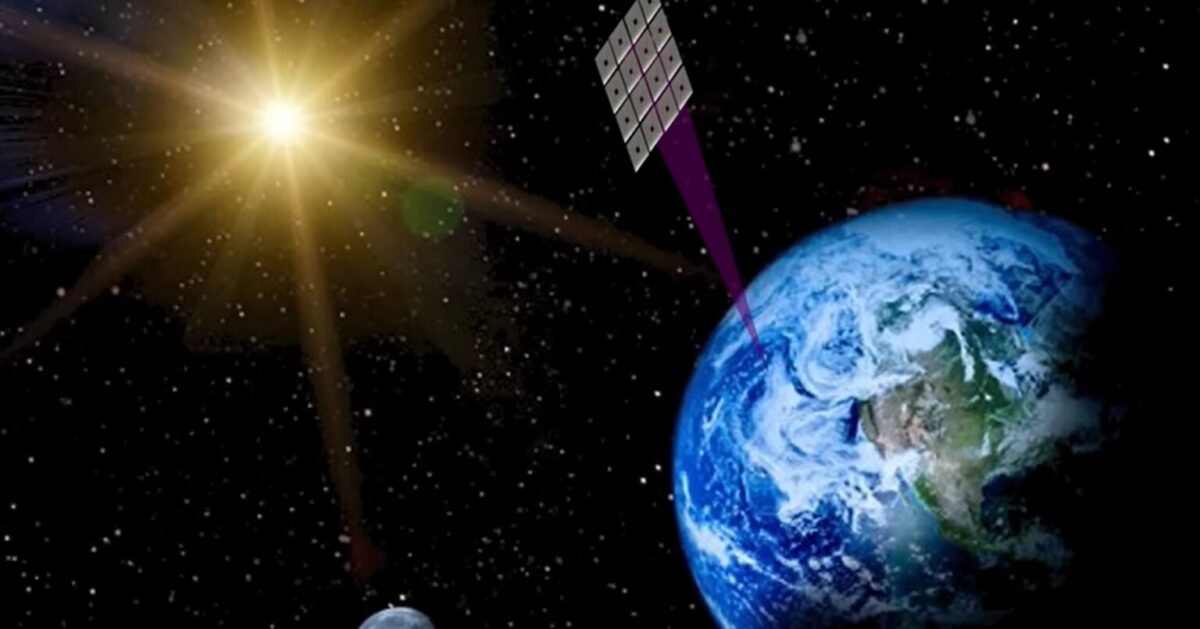From pv magazine USA
Space-based solar power has been studied for decades because, theoretically, it could tap into a virtually unlimited supply of solar energy in outer space. California Institute of Technology (Caltech) researchers estimate that solar from space could yield eight times more power than solar panels at any location on Earth’s surface, and in January, the Caltech Space Solar Power Project (SSPD) launched a prototype into orbit to beam power to Earth.
The SSPD deployed a constellation of modular spacecraft equipped with PV to collect sunlight, convert it to electricity, and then wirelessly transmit the electricity over long distances wherever it is needed. Caltech said the technology could be useful to remote areas that do not have supportive transmission infrastructure.
Wireless power transfer was demonstrated by Microwave Array for Power-transfer Low-orbit Experiment (MAPLE), developed at Caltech. It is one of three key technologies being tested by the Space Solar Power Demonstrator (SSPD-1), the first space-borne prototype from Caltech’s SSPP.
MAPLE includes lightweight microwave power transmitters driven by custom electronic chips that were built using low-cost silicon technologies. It uses the array of transmitters to beam the energy to desired locations.
“Through the experiments we have run so far, we received confirmation that MAPLE can transmit power successfully to receivers in space,” said Ali Hajimiri, professor of electrical engineering and medical engineering and co-director of SSPP.
pv magazine print edition
“We have also been able to program the array to direct its energy toward Earth, which we detected here at Caltech,” said Hajimiri. “We had, of course, tested it on Earth, but now we know that it can survive the trip to space and operate there.”
To continue reading, please visit our pv magazine USA website.
This content is protected by copyright and may not be reused. If you want to cooperate with us and would like to reuse some of our content, please contact: editors@pv-magazine.com.




1 comment
By submitting this form you agree to pv magazine using your data for the purposes of publishing your comment.
Your personal data will only be disclosed or otherwise transmitted to third parties for the purposes of spam filtering or if this is necessary for technical maintenance of the website. Any other transfer to third parties will not take place unless this is justified on the basis of applicable data protection regulations or if pv magazine is legally obliged to do so.
You may revoke this consent at any time with effect for the future, in which case your personal data will be deleted immediately. Otherwise, your data will be deleted if pv magazine has processed your request or the purpose of data storage is fulfilled.
Further information on data privacy can be found in our Data Protection Policy.